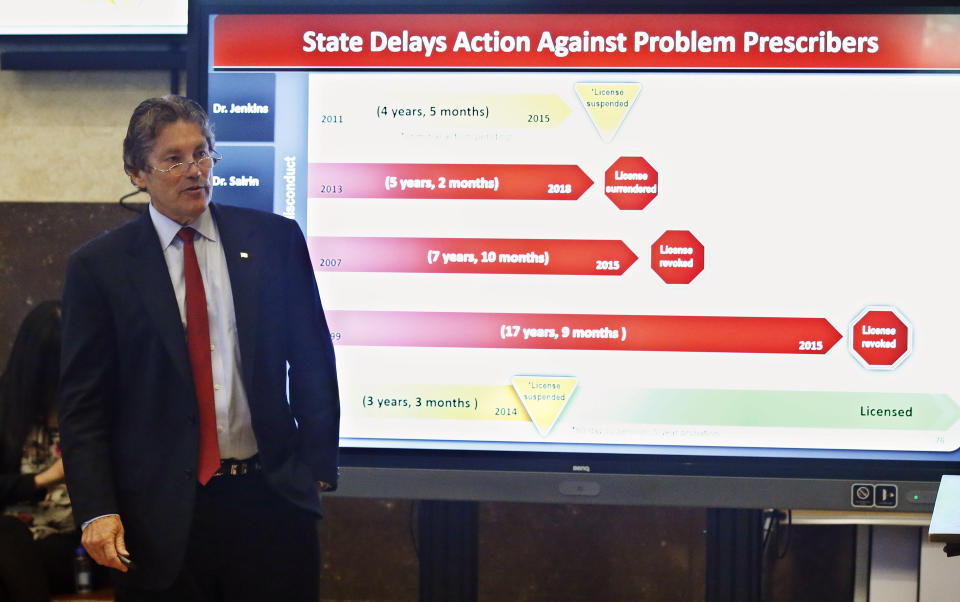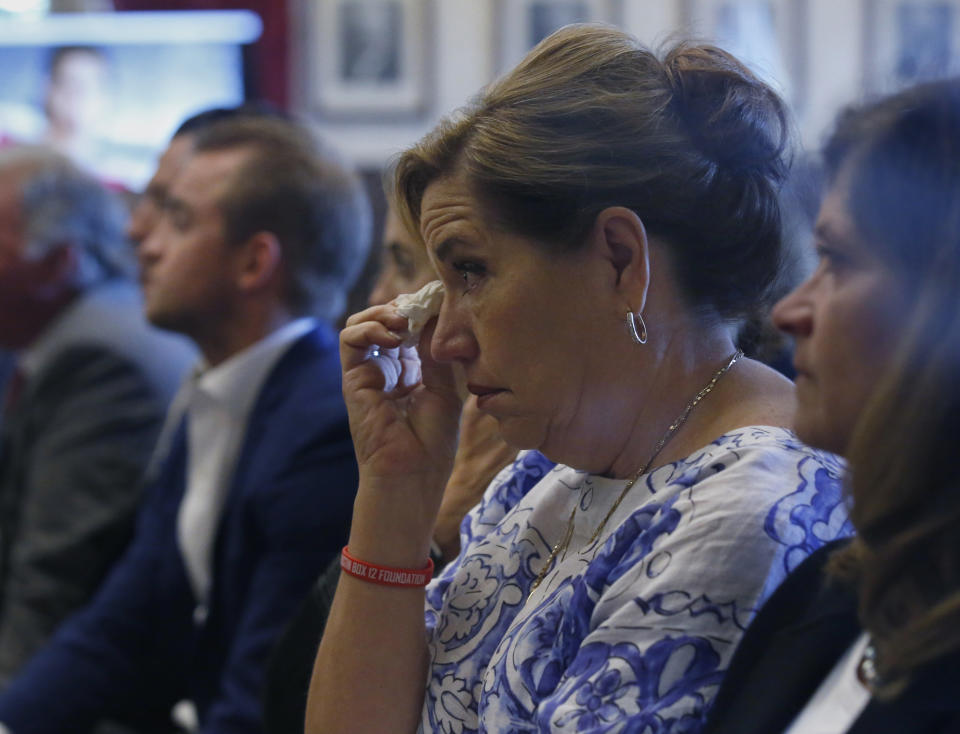Johnson & Johnson CFO on the opioid crisis: 'We don’t believe we were the cause'
Pharmaceutical companies are facing increasing scrutiny for their alleged roles in the opioid crisis. The state of Oklahoma, in particular, hasn’t been shy about going after these companies: It reached a $270 million settlement with Purdue Pharma and a $85 million settlement with Teva Pharmaceuticals.
Its next target? Johnson & Johnson (JNJ).
“The state’s claims don’t align with the facts,” Joe Wolk, Johnson & Johnson’s Chief Financial Officer, said on Yahoo Finance’s On the Move. “And those facts are very simply that Johnson & Johnson had less than 1% share over a 20-year period through their Medicaid reimbursement programs that were related to Johnson & Johnson products. This is documented by the state of Oklahoma.”
Wolk added: “Even the attorneys in that case, as I understand it, have been referenced many times to say this is not about Johnson & Johnson products. It’s about an opioid crisis. So again, we want to be part of the solution. But we don’t believe that we were the cause of the current situation.”

J&J features two primary opioid painkillers — Duragesic and Nucynta. The state of Oklahoma alleged during the trial that J&J not only promoted opioids but also had an incentive to make them more popular because the company owned two business that supplied pharmaceutical ingredients.
During the first round of the Democratic presidential debates, candidates like Sen. Cory Booker (D-NJ) and Beto O’Rourke (D-TX) chimed in about the role that pharmaceutical companies play in the rise of opioid addiction, with Booker stating that these companies should be “held criminally liable.”

J&J has continued to deny any wrongdoing.
“We all recognize that the opioid addiction is a national crisis,” Wolk said. “And we certainly, as one of the world’s largest health care providers, want to be part of the solution. It is a solution that’ll be multifaceted, requiring many players across physicians, manufacturers, patient advocacy groups.”
Adriana is an associate editor for Yahoo Finance. Follow her on Twitter @adrianambells.
READ MORE:
Fed Chair Powell: Opioid epidemic is 'a national crisis' hitting the economy
Booker on opioids: Pharma companies 'should absolutely be held criminally liable'
Adopted AOC amendment will move $5 million from DEA to opioid abuse treatment
Read the latest financial and business news from Yahoo Finance
Follow Yahoo Finance on Twitter, Facebook, Instagram, Flipboard, SmartNews, LinkedIn, YouTube, and reddit.

 Yahoo Finance
Yahoo Finance 
